Good Practices on Student Engagement with Society
The Qual-AI-ty Engagement project presents the Compendium of Good Practices on Student Engagement with Society. This compendium highlights cases from Germany, Ireland, Latvia, Malta, Spain, and the Netherlands, and how these diverse higher education institutions implement practices to facilitate students’ interaction with society.
UNIKAT: from the Idea to the Foundation. Student Engagement with Society through Innovation and Entrepreneurship
The University of Kassel promotes student and university members’ community and social engagement through its organizational structure UNIKAT, a central label articulating services in start-up funding, technology transfer, patent management, career service, further education, dual studies, civic engagement, and alumni services. UNUKAT supports students to become more entrepreneurial thinking and acting throughout the university since the programme covers all the faculties.
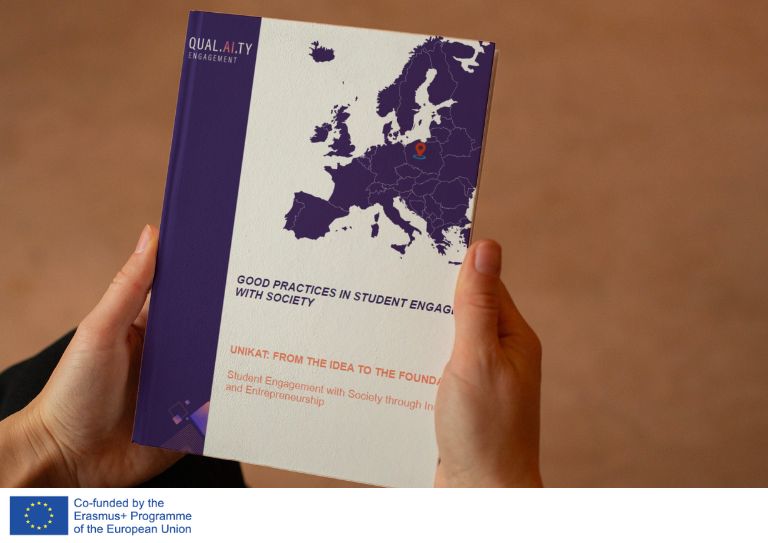
ECA Certificate for Quality in Internationalisation (CeQuInt)
The European Consortium for Accreditation in Higher Education (ECA) created the CeQuInt methodology to assess the quality of internationalisation in higher education. This methodology aims at providing HEIs with a benchmark of good practices in internationalisation.
Students play a central role in this methodology since the certificate assures that they achieve high international and intercultural competencies. Furthermore, students contribute to the assessments through reviews either as panel members or as interviewees.
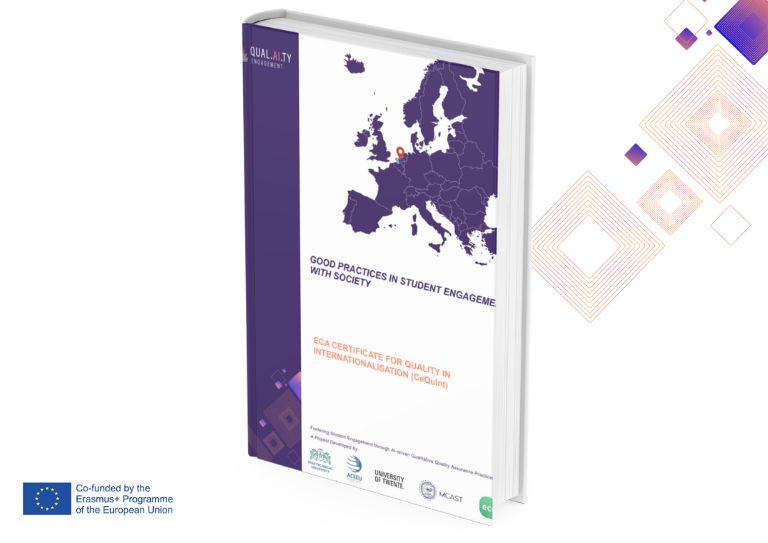
Legal Clinic for Social Justice in the University of the Basque Country
The Legal Clinic for Social Justice in the University of the Basque Country (UPV-EHU) (hereinafter LCSJ or legal clinic) is a space for transforming the classical pedagogical system used in legal and criminological studies. It is proposed as a laboratory for reflection on the theory and practice of law and criminology, with the aim of identifying anti-discrimination legal strategies through which students can become aware of their important roles in achieving a more egalitarian society. The activity of the LCSJ consists of two parts: a) training in critical thinking and b) providing a legal criminological response to specific cases of social injustice framed in discrimination and/or structural violence.
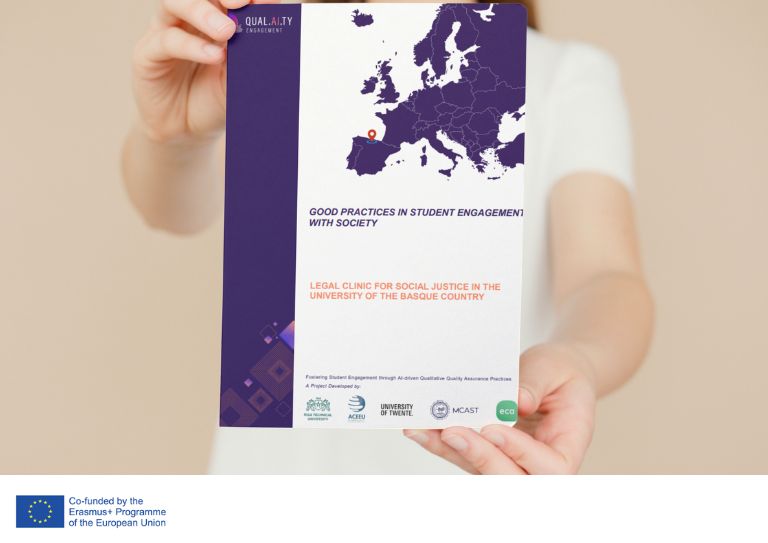
University College Cork: Students’ Civic and Community Engagement
The Civic and Community Engagement Plan outlines the goals of University College Cork to enact a strategic and coordinated approach, to raise the profile of civic and community engagement (CE) activities, to ingrain a culture of engaged staff and students, and to deepen their presence in the community. The vision of the Civic and Community Engagement Plan is to lead the university in civic engagement by capitalizing on its teaching and learning strengths and translating its dynamic academic and research leadership into far-reaching community engagement for the benefit of all.
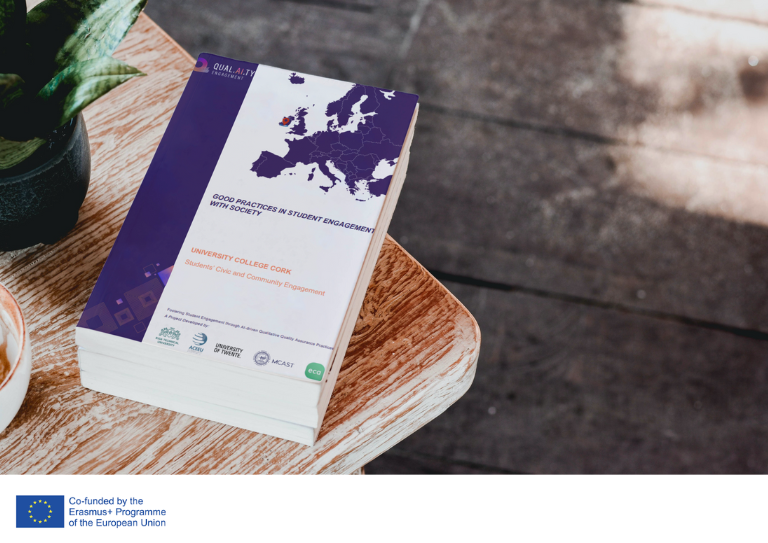
State Funding for VET and Higher Education Students
Malta provides public funding to all students that have finished their secondary education and are not enrolled in either postsecondary or tertiary education programmes. Such state funding helps students to transition to the activities needed by the national industry. This report provides several examples and ample descriptions of such initiatives. A special focus is placed on MCAST, which is the leading public vocational institution in Malta.
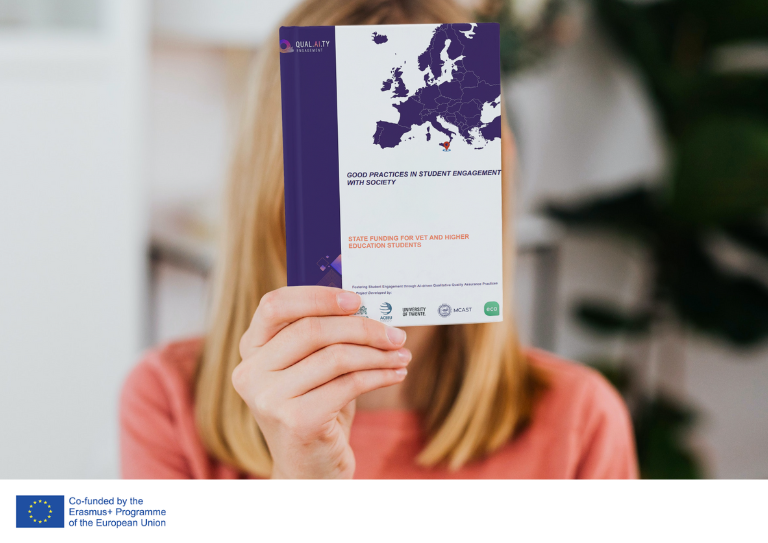
Fostering Social Responsibility at MCAST
The MCAST Corporate Social Responsibility initiative aims to provide MCAST learners with the opportunity to enhance their studies with life-enriching experiences that add value to their holistic knowledge base. It contributes to the fostering of responsible and active citizenship. Community work is carried out within local NGOs, sports associations and clubs and local councils. Furthermore, this initiative provides a framework for all MCAST learners to have the knowledge and skills acquired in non-formal and informal settings recognised and accredited.
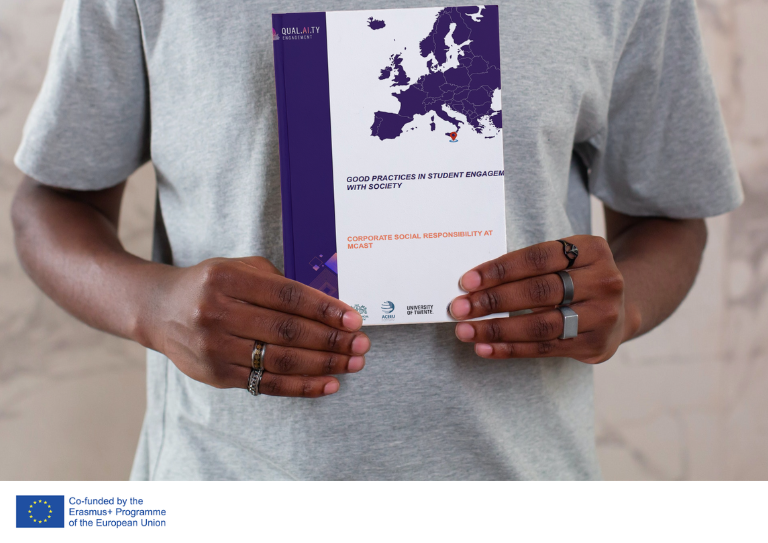
IICT Student Apprenticeships
How to ensure students gain real workplace experience and have a smooth transaction from higher education to work?
To solve this challenge, MCAST designed a Students Apprenticeship Programme to boost university-industry collaborations and allow students to gain a practical understanding of the cutting-edge technologies being used in the workplace.
This initiative has gained national relevance in Malta since it closes skill gaps and contributes to developing relevant and specialized human talent for the country.
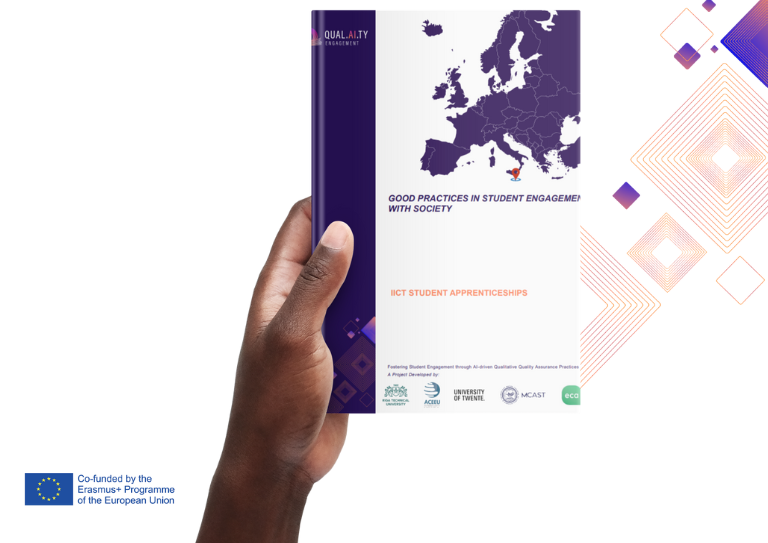
ECIU University: European University on Challenge-Based Learning
The ECIU University is a university on European level where learners, teachers and researchers engage with society and businesses to solve real-life challenges through a challenge-based learning educational model.
The European Consortium of Innovative Universities (ECIU) organization was launched in 1997 with the intention to create a new educational model for innovation, based on challenge-based learning. It is a network of universities that aims to become a global leader in higher education. In 2019, the ECIU University was launched.
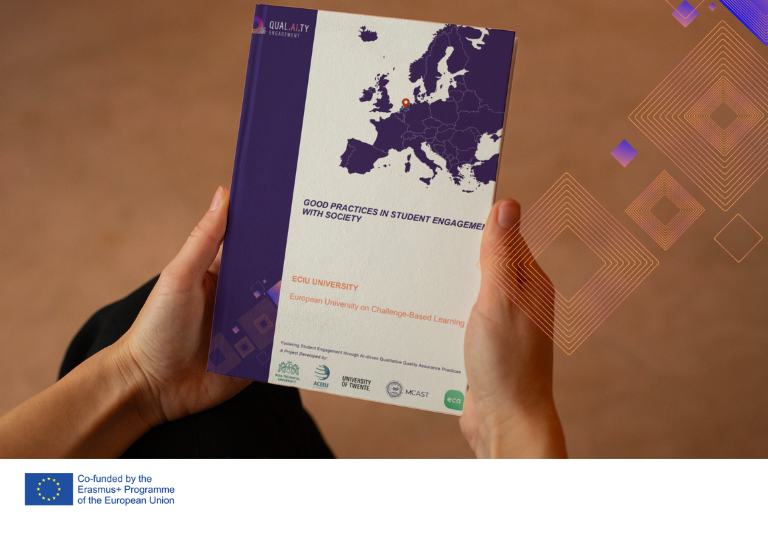
Green Hub Twente: Student Engagement in Sustainability
Students at the University of Twente have developed the Green Hub Twente, which is set up to collect knowledge and innovations on sustainability with the goal of developing a circular ecosystem, both at the University of Twente and the society surrounding it. This initiative tries to build a network including students and UT staff members, researchers, companies, organizations and local communities. The main goal of this organization is to create a bottom-up platform that will play a pivotal role in realizing sustainability in the UT community.
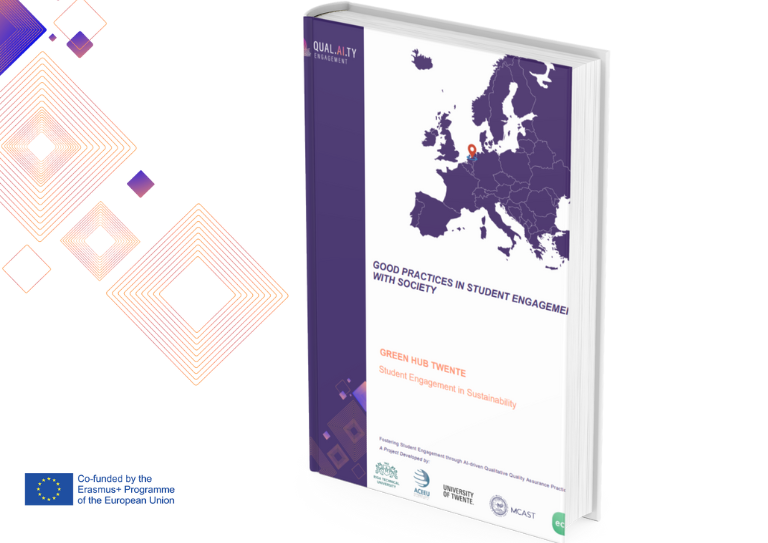
ICADE’s Corporate Social Consultancy: Economics and Business at the Service of the People
The Corporate Social Consultancy of ICADE (Catholic Institute of Business Administration) is a project for developing professional university volunteering combining social commitment, social training, collective reflection, and implementation of students’ knowledge in projects. The aim of the initiative is to take the economy out of academia and place it at the service of society. The objective of the Corporate Social Consultancy is to educate socially responsible business students, ethically prepared professionals for the contemporary social contexts, and individuals capable of integrating social and environmental aspects into their managerial, interpersonal, and leadership skills.
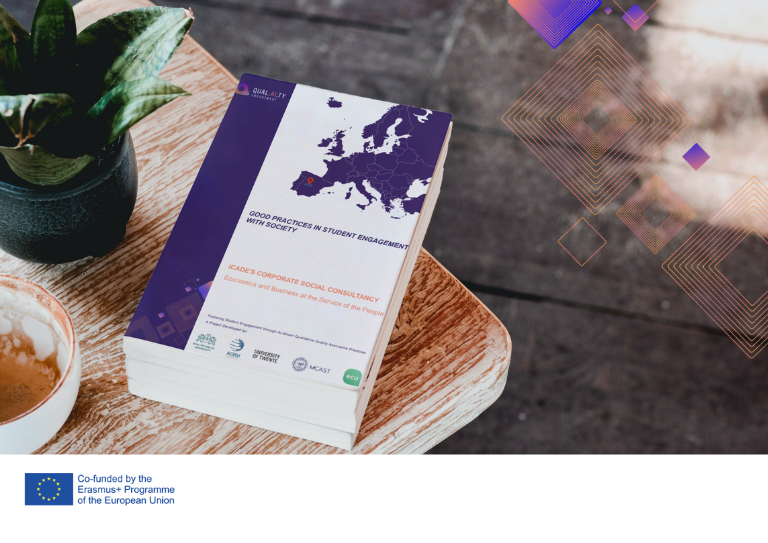
RTU Design Factory
DF provides access for researchers and students to facilities, tools and services for prototyping that allow the creation of new and complex solutions. Technologies DF offers range from laser cutting and engraving, 3D printing and scanning to highspeed CNC machining and post-processing. DF works with interdisciplinary student and researcher teams to solve real-life challenges from various industries. DF also develops scientific equipment, demonstration models or fully functional prototypes to support the scientists and staff of RTU. The DF team combines a variety of skills in mechanical engineering, robotics, creative thinking and methodologies, electronics, product development, design and business. And the team members speak 10 different languages.
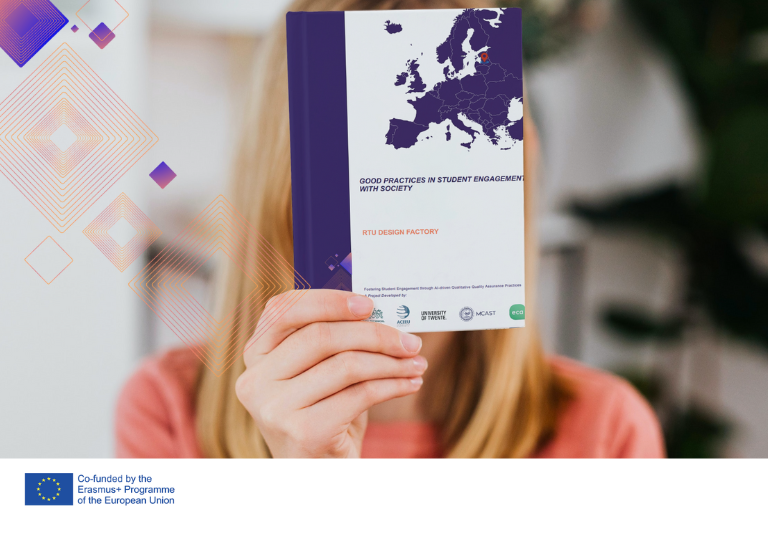
Repository of Good Practices in Quality Matters in the University of Santiago de Compostela
How to foster an organizational culture focusing on quality enhancement in universities? How to build a repository of good practices in quality matters in universities? This report showcases the practices of the University of Santiago de Compostela (USC), which may serve as a reference for university managers.
The report explains the procedure for identifying and recognizing good practices carried out by USC Faculties about the processes of the Quality Assurance System, including strategic processes, key processes, and support processes.
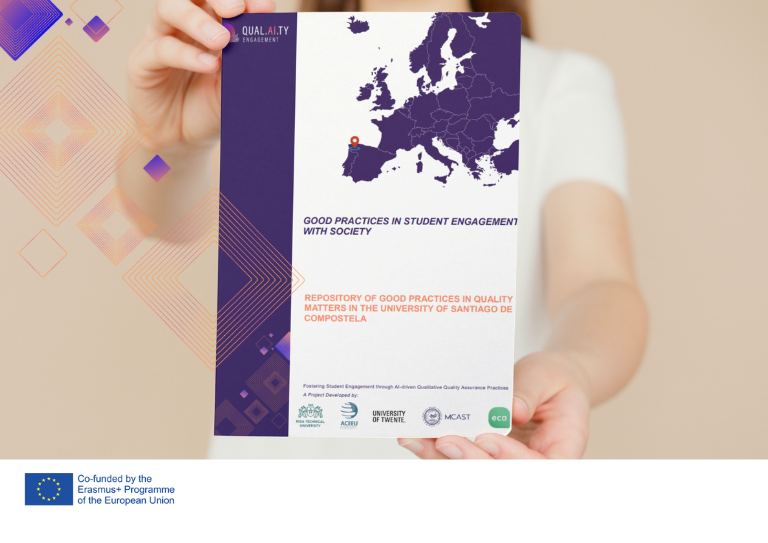
SSE Future Leaders Academy
The Future Leaders Academy (FLA) is a programme at the Stockholm School of Economics in Riga (SSE Riga) that aims at educating, inspiring and developing the leadership potential of future Latvian community leaders.
To do so, FLA works with an effective network of partnerships: Alumni provide networking opportunities and role models, local NGOs train students on critical thinking, media representatives provide workshops on media literacy, the Chancellery and various ministries of Latvia are invited as speakers, The Embassy of Sweden trains in diplomacy, and higher education institutions of the country promote the programme.
The FLA model is highly transferable and promotes cooperation among diverse sectors to boost the potential of young leaders.
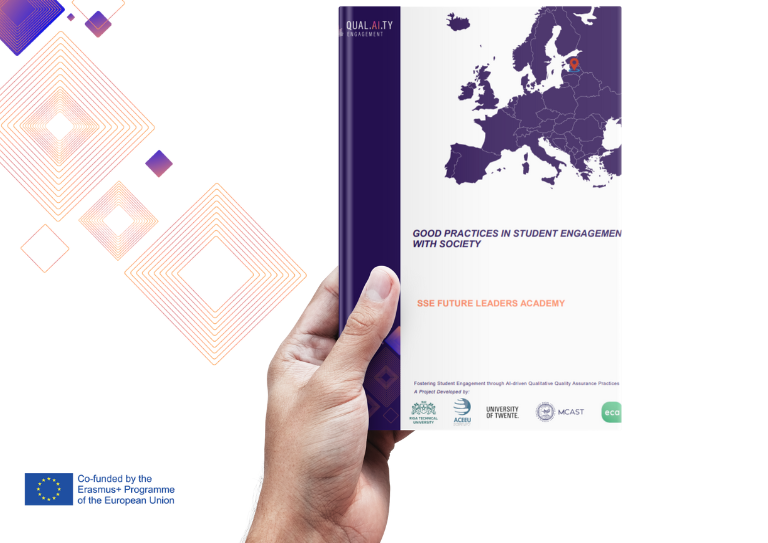
Batavierenrace: The largest relay race of the world
The Batavierenrace is a relay race of 170 kilometres from the centre of Nijmegen (Radboud University) to the campus of the University of Twente. On average, 8.500 athletes who are mostly students participate. It is organized by an organizing committee consisting of nine students from Radboud University in Nijmegen and the University of Twente in Enschede. The participating students are organized into around 350 teams, where they take part in 4 to 11 legs. At the end of the race, a big party is organized in Enschede which is joined by usually 13.000 students.
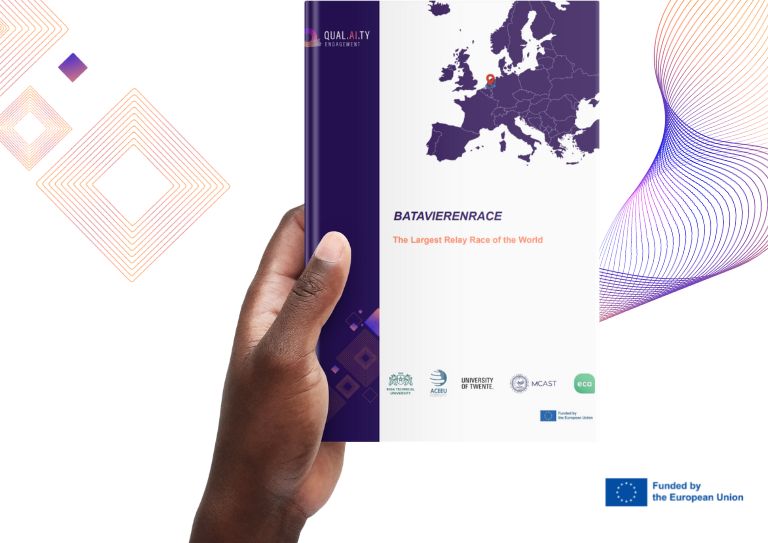
Pride of Faculty of Engineering Economics and Management at RTU (IEVF Lepnums)
The Faculty of Engineering Economics and Management (thereafter – FEEM) is one of the nine faculties of Riga Technical University and is constantly evolving and expanding. Nowadays FEEM is one of the biggest faculties at RTU with almost 3,500 students. As in all faculties of the university, also in FEEM student’s parliament is established. Student’s Parliament of FEEM (hereafter – SP) is created to represent FEEM students in both – academic and social rights, and cultural life.

